
You are reading:

You are reading:
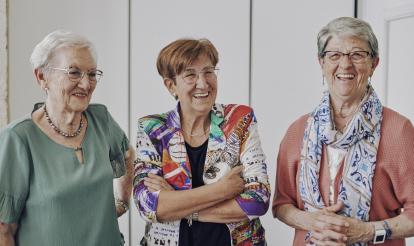
01.10.24
4 minutes readGloria, Rosa, Joaquina, Mirentxu and Mertxe are between 75 and 90 years old and live in Pamplona. They all have something in common: for one reason or another, they felt lonely. Thanks to the Always Supported programme of the ”la Caixa” Foundation, in collaboration with the Caja Navarra Foundation and Pamplona City Council and managed by the Fundación Pauma, they found a way of meeting people and seeing loneliness in a different colour through gymnastics and other social activities.
The protagonists of this story agree that the Always Supported project of the programme for the Elderly, which supports older people who feel lonely because of their age or difficult personal situations, was a turning point in their lives. Gloria Fortún Abete, who looks after her husband, was drawn to the gymnastics classes they offered, which were suitable for her 75 years of age. “I didn’t want to lie on the floor or do circuits, so when someone explained to me that they did chair exercises, I went to find out more and discovered the whole programme. It was a real find. In no time, I’d not only signed up for gymnastics, but also for the Monday courses and the dance classes.” Gloria highlights the care and warmth of all the sessions, but above all the fact that she has got to know her fellow participants.
According to Mirentxu Araiz Zugasti, coordinator of Pauma, this programme, which started in 2020, has enabled them to assist more than 100 people in the Pamplona neighbourhoods of San Juan, Iturrama and Txantrea. Although the main office is located in the Convive Oskia centre, each neighbourhood has its own spaces, ensuring personalised attention in their respective community. Outside venues are also used, such as Yamaguchi Park or the Astiz hostel, managed by the Fundación Pauma, in order to diversify activities. “Thanks to the programme,” says Mirentxu, “many older people have overcome stereotypes about age and found new horizons in their lives, as well as meaningful relationships.”
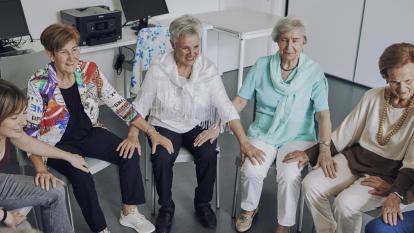
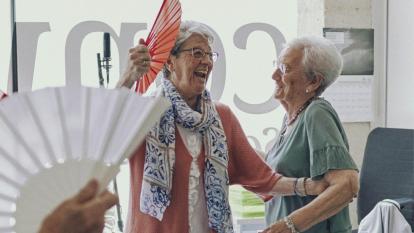
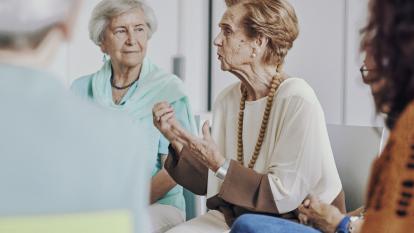
This is the case with Rosa Torres Lana who, at 79, becomes emotional when talking about her recently deceased husband. “When you come back home and turn the key, you realise that there’s no one there. My husband was always at the computer and when I arrived I’d say: “Javier, I’m here’. Now I can’t talk to anyone and it’s hard.” Holding back tears, Rosa says that Always Supported has been a before and after in her grieving process, and that she now faces life with greater enthusiasm.
Joaquina Iturralde Irigoyen, who is over 90 years old, also agrees with this sentiment. She felt very lonely as a result of the pandemic and discovered the programme with the help of her daughter. “When you’re alone you tend to think about sad things, but in the company of other people you feel rejuvenated.” Gloria shares this feeling of renewed enthusiasm. She is aware of the need to prevent loneliness, because life can change at any moment and you can find yourself alone. Thanks to Always Supported, she has come into contact with others and opened up her world to new experiences. “Establishing bonds with other people, as we do in this programme, allows us to gain self-esteem and see the world around us in a more optimistic way.” So much so that, although they are all aware that their fight against loneliness began with an internal decision, a desire to be at peace with themselves, these meetings have now become an essential part of their daily lives. Mertxe Garralda Labiano, 84, stresses the importance of building meaningful relationships. “When there are no planned activities, we meet with the other friends. We’ve become close and enjoy telling each other about our lives.”
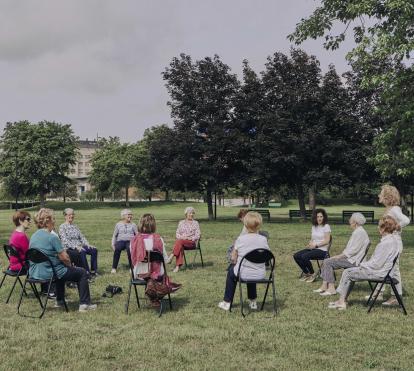
Another fundamental aspect of Always Supported is that loneliness is not perceived as a negative feeling in itself, but rather is experienced in different ways according to each person’s situation. The proof lies in the answers given by users when asked what colour their loneliness is. They all agree that in the most difficult and sensitive moments, they associated loneliness with sad colours, such as the ashen grey of the lengthening evenings. Now that they have built meaningful relationships in their surroundings, they all see it in much more optimistic colours. For Mertxe, for example, it is blue, her favourite colour, and for Rosa it is “hope green”.
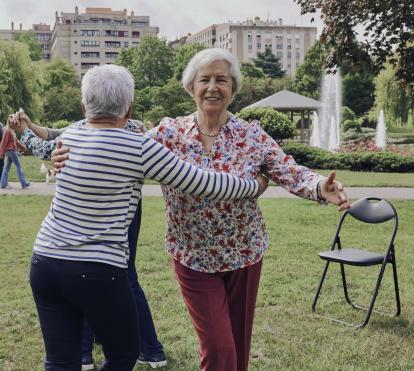
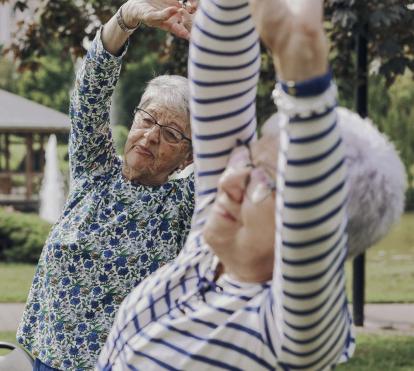
Gloria, Rosa, Joaquina, Mirentxu and Mertxe’s story is part of the documentary project Life stories, 14 stories of overcoming adversity which gives a voice to people at risk of exclusion who share their experiences in order to raise public awareness.